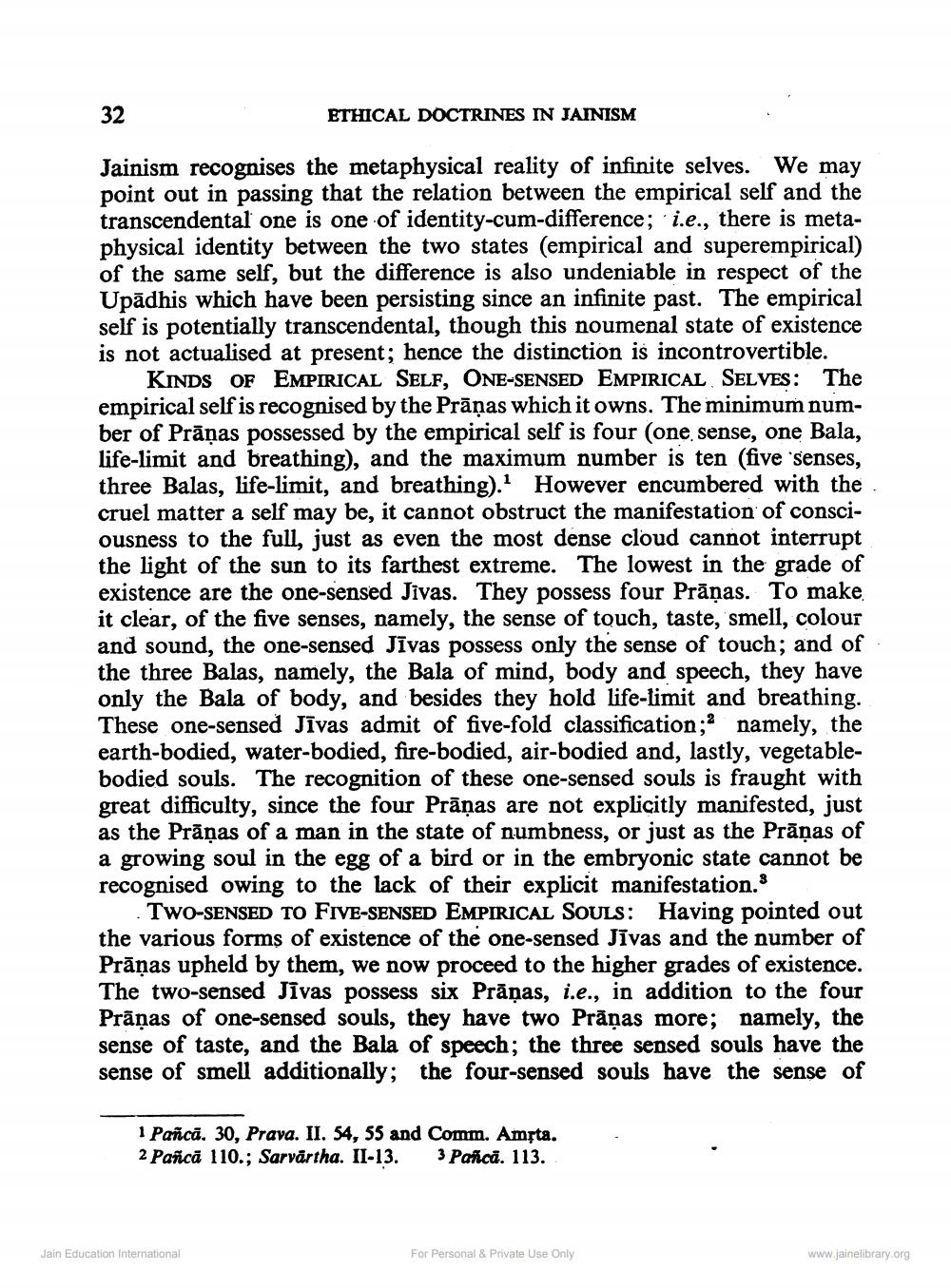________________
32
ETHICAL DOCTRINES IN JAINISM
Jainism recognises the metaphysical reality of infinite selves. We may point out in passing that the relation between the empirical self and the transcendental one is one of identity-cum-difference; i.e., there is metaphysical identity between the two states (empirical and superempirical) of the same self, but the difference is also undeniable in respect of the Upādhis which have been persisting since an infinite past. The empirical self is potentially transcendental, though this noumenal state of existence is not actualised at present; hence the distinction is incontrovertible.
KINDS OF EMPIRICAL SELF, ONE-SENSED EMPIRICAL SELVES: The empirical self is recognised by the Prāņas which it owns. The minimum number of Prāṇas possessed by the empirical self is four (one sense, one Bala, life-limit and breathing), and the maximum number is ten (five senses, three Balas, life-limit, and breathing). However encumbered with the cruel matter a self may be, it cannot obstruct the manifestation of consciousness to the full, just as even the most dense cloud cannot interrupt the light of the sun to its farthest extreme. The lowest in the grade of existence are the one-sensed Jivas. They possess four Prāṇas. To make. it clear, of the five senses, namely, the sense of touch, taste, smell, colour and sound, the one-sensed Jīvas possess only the sense of touch; and of the three Balas, namely, the Bala of mind, body and speech, they have only the Bala of body, and besides they hold life-limit and breathing. These one-sensed Jīvas admit of five-fold classification; namely, the earth-bodied, water-bodied, fire-bodied, air-bodied and, lastly, vegetablebodied souls. The recognition of these one-sensed souls is fraught with great difficulty, since the four Prāņas are not explicitly manifested, just as the Prāṇas of a man in the state of numbness, or just as the Prāṇas of a growing soul in the egg of a bird or in the embryonic state cannot be recognised owing to the lack of their explicit manifestation.
TWO-SENSED TO FIVE-SENSED EMPIRICAL SOULS: Having pointed out the various forms of existence of the one-sensed Jīvas and the number of Prāņas upheld by them, we now proceed to the higher grades of existence. The two-sensed Jīvas possess six Prāņas, i.e., in addition to the four Prāṇas of one-sensed souls, they have two Prāṇas more; namely, the sense of taste, and the Bala of speech; the three sensed souls have the sense of smell additionally; the four-sensed souls have the sense of
1 Pañca. 30, Prava. II. 54, 55 and Comm. Ampta. 2 Pañcā 110.; Sarvartha. II-13. 3 Panca. 113.
Jain Education International
For Personal & Private Use Only
www.jainelibrary.org




